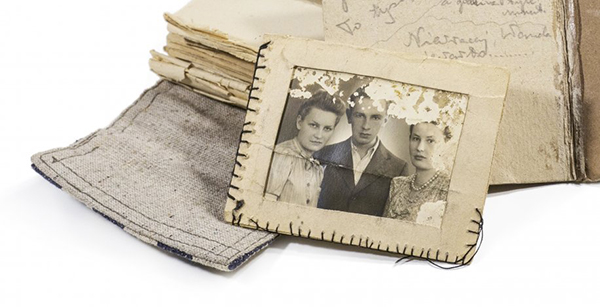
|
“One of my goals is to leave the world a slightly better place for the next generation”, says Robert D. Resnick, one of two new honorary doctors at the Faculty of Theology. His unique fundraising efforts enabled the translation and digitisation of the 514 testimonies from concentration camp survivors, preserved in the Ravensbrück Archive.
The lights were dimmed in the room. “Testimony 113. Children were sent for liquidation with those mothers who did not look like being able to work. There was a heroic
Jew in the square. When they were about to take away his child, he approached the SS-man and hit him in the face with words: ‛Both me and you will meet our ends.’ Immediately he with his wife and child were taken aside. The child and wife were shot first, then was he.”
Testimony after testimony from the Ravensbrück Archive was read out loud by Robert D. Resnick’s wife Wendy. The atmosphere in the room during his honorary doctor’s lecture changed – the intolerable and unfathomable cruelty in the stories got under the skin of the audience members.
“I do this work because it is too important not to. I have a lifelong commitment to the survivors of the Holocaust”, says Robert D. Resnick, who reports that he was incredibly surprised and flattered to be awarded an honorary doctorate.
Philanthropist Robert D. Resnick has degrees from the University of California, Berkeley and Southwestern University School of Law, and has been a successful entrepreneur since his youth, working in the real estate sector and running his company RDR Properties, among other things.
Robert D. Resnick has long worked with different projects within the framework of the Lund University Foundation, most recently as the chair of the Ravensbrück Archive fundraising committee. There, his task was to draw the attention of donors in the USA to the Ravensbrück Archive at Lund University Library. And to explain why the testimonies of 514 concentration camp survivors needed to be made available to researchers and to the general public.
“The digitisation of the Ravensbrück Archive was the perfect project for the 350th anniversary year. It could be linked to the University’s mission to create a better world by contributing to healing the wounds of the persecution of the Jews during World War II”, he says.
During his honorary doctor’s lecture, Robert D. Resnick also recounts some of his own family history. His parents emigrated from Europe to the USA during the 1920s because of the pogroms against Jews that were already going on at the time. In the Jewish community in Los Angeles where he grew up, he had several friends whose parents had prisoner numbers tattooed on their forearms. It aroused his interest in their underlying stories.
“They talked about family members subjected to horrific medical experiments in the concentration camps, about continuous starvation, about prisoners who, due to advanced age or weakness, were shot before their eyes or sent straight to the gas chambers. Some survivors I met could not talk about the unfathomable cruelty of which they had been the victims. All these stories convinced me that we must never be allowed to forget the Holocaust – to ensure that it will never happen again”, he says.
Robert D. Resnick’s relationship with Lund University goes back to 1971 when he arrived in Lund as an exchange student. He was 20 years old, had never been outside California and had never seen snow.
“It was during the Vietnam War. I was interested in Swedish idealism and progressive ideas with regard to views on the family, family values and society. To get the chance to step outside your own life, as I did then, is an advantage that changed my way of looking at the world. And since that first day I arrived in Lund, I have loved this city”, he concludes.
Read more.
Text: Gisela Lindberg
|
|